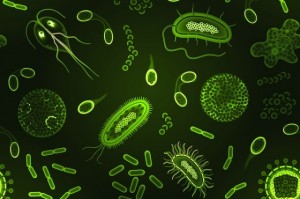After 1.5 years of collection events, culturing, identification, and selection of candidates our space microbes experiment finally is in orbit. Our 48 microbes, collected from a variety of built environments on earth, are now whipping around the planet. The rocket took off from Kennedy Space Center at Cape Canaveral at 3:25pm EST yesterday. In a …
Yesterday was to have been the day that our collection of 48 microbes, collected from built environments around the country, were to blast off into space and try growing in microgravity. This would be followed by swabbing of the space station performed by the astronauts. We plan to analyze these swabs using bacterial, archaeal, and …
From the start, Project MERCCURI has involved classrooms and students in the process of citizen science. Many of our samples were collected by students and the microbes going into space from JPL were voted on by a number of high-school classrooms. Now we have a “Project MERCCURI Educator’s Guide” which contains a detailed overview of …
Tomorrow all day there will be a meeting at AAAS HQ on “Microbiomes of the Built Environment“. I will be speaking at the meeting, and this is one of my major research areas, so I am a bit biased, but the meeting is going to be great I think. And it will be webcast live. …
This study by C. Balagna et al from 2012 looks at the application of their product on spacecraft. They covered a commercial polymer generally used in aerospace with an antimicrobial made of silver and silica using radio frequencies. This was done in an attempt to mitigate the amount of contamination of spacecraft surfaces. When in space, …
After over a year of collecting and screening hundreds of samples from the built environment we have just sent our collection of 48 “finalists” to Florida for the upcoming launch. Samples have come from all over the country including NFL/NBA/MBL games, sites of historic interest (e.g. the Liberty Bell), and a number of schools. These …
In researching previous studies conducted on microbes in space for Project MERCURRI, I ran across an interesting microbiology diversity study done on European Spacecraft-Associated (ESA) clean rooms in the Herschel Space Observatory. Historically, clean rooms are supposedly “sterile” environments that are used for the building and maintenance of spacecrafts, as directed by the UN’s Outer Space planetary …
The human microbiome and microbes in space are two of the sexiest topics in microbiology today. Together they have attracted the attention of the J. Craig Venter Institute. Hernan Lorenzi is leading a team to study how the composition of the human microbiome changes during long term space exploration. They will be analyzing the microbiome of …
Just discovered this report: BEACON eSpace at Jet Propulsion Laboratory: Genetic inventory task final report. It is a summary of genetic studies of microbes found on various spacecraft and associated facilities. Abstract: Contaminant terrestrial microbiota could profoundly impact the scientific integrity of extraterrestrial life-detection experiments. It is therefore important to know what organisms persist on spacecraft …
I haven’t posted in awhile about Project MERCCURI but we’ve been plugging along preparing all of our candidate bacteria to fly to the space station. This process turned out to be much much more work that we anticipated. In the end we grew up many hundreds of strains from events around the country in order …
